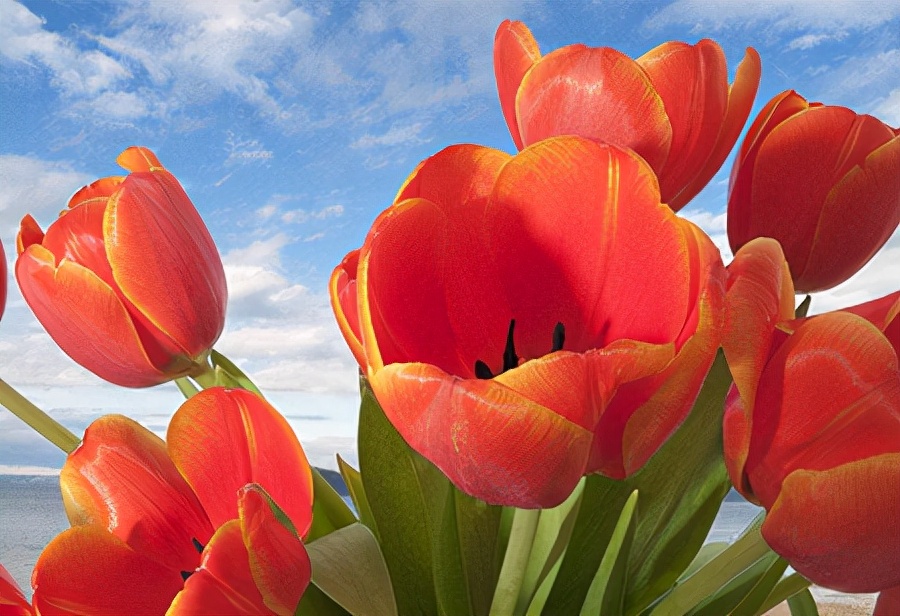
Recently, I read the "Flowing Years Did Not Pay dongliu - Wu Yigong Biography" written by Professor Ishikawa of the Shanghai Theater Academy, and read some interesting past events, many of which are unknown details behind the movie. For example, when filming on the Gobi Desert, altitude sickness brought about various physical discomforts, headaches, dizziness, tiredness, difficulty breathing, half of Wu Yigong's face was swollen after periodontitis recurred, and he insisted on working in the hot desert. For example, in order to perfectly present a sentence in the script that "the sun is setting", director Wu Yigong filmed the sunset for a week in the unpredictable desert. As for the regrets caused by the filming of some films, he will feel very ashamed. "In his opinion, this shortcoming of the film can be completely avoided, and it is his own dereliction of duty."
There are also some stories that show the tenacity and cuteness of director Wu Yigong's personality. During the period when he was sent to the Shanghai Biochemical Pharmaceutical Factory, although he encountered a double blow of spirit and real life, he did not let himself go unchecked, but instead learned his own materiel knowledge and improved the pharmaceutical process, which even tripled the daily output of the production line. As a result, "Wu Yigong has since become a little Wu loved by everyone."
Before reading this book, my impression of director Wu Yigong was more composed of his works. As one of the leading figures of the fourth generation of Chinese directors, his works have left a beautiful and profound historical and cultural memory for generations. The mourning but not the sorrow and not the anger of "Bashan Night Rain", the delicate restraint of "Old Things in seongnam", the true simplicity of "Sister", the fate of the home country of "Exile University", the cultural inheritance of "Que Li Renjia", the humanity of "The Moon Returns with People" is the best... These film histories and the conclusions made by critics were a bit of a "knowing but not knowing why" for me before. However, after reading the many details in the biography that seem to be unrelated and actually implicated in each other, I seem to understand Ishikawa's evaluation of Director Wu Yigong from the heart: "a poetic realist", "On the one hand, his aesthetic concept points to the Confucian feeling of home and country, on the other hand, he is based on the soil of reality, and responds to any questions and challenges posed by reality in his own way." ”
Listening to this passage was held by the Shanghai Municipal Federation of Literature and Literature a few years ago at the "Heart-related Film, Virtue and Art Shuangxin -- Wu Yigong Director Art and Cultural Spirit Commemoration Symposium". At this symposium, I also heard many people's sincere remembrance of director Wu Yigong. I still remember director Cheng Jiaji saying a passage. As a "follower and collaborator" who has served as a field reporter, director's assistant and assistant director in wu Yigong's eight films and one TV series, director Cheng Jiaji recounts his experience of entering the film industry: he was initially ignorant of the film director profession, and when he worked as a field reporter, he could not even formulate a scene table. As a director, Wu Yigong tirelessly helped me complete the formulation of the first scene table. Later, I formulated a very detailed list of scenes, accurate to the number of extras to single digits, and even the category and number of props were required, thanks to Wu Yigong's demonstration and enlightenment of me. During the difficulties of my life, he sympathized with me, understood me, and shed tears for me many times. He tapped me on the shoulder and said, 'Okay, let's do it together.' ’”
I also remember that Xi Meijuan, chairman of the Shanghai Municipal Federation of Literary and Art Circles, talked about her personal performance art seminar held in the 1990s, and Wu Yigong made a finale speech. "Teacher Wu did not blindly praise me in his speech, but put forward a lot of hopes and room for future efforts for my performance, and I could hear that he had seriously thought about the advantages and disadvantages of my performance, and his words were serious and long, which made me very moved." Jiang Haiyang, a director who had followed Wu Yigong to shoot works such as "Old Things in Seongnam" and "Sister", also said, "As a respected leader of several generations of myself, he has always treated me with sincerity. When shooting, even if I had problems because of my lack of experience, he never blamed me. He respected every member and taught me the meaning of parenting. ”
Only with the virtue of a humble gentleman can there be a work of a humble gentleman. Wu Dao's works have left beautiful and profound works for generations, and what supports these beautiful and profound memories is not only the return and transcendence of the director's aesthetic style to ethnic poetics, but also an external embodiment of director Wu Yigong's personal character and feelings. "Mr. Wu Yigong has used his life to practice the ideal of film and the love for the motherland and the people; he has written the timeless artistic pursuit and sincere feelings of home and country with his own works; he has interpreted the connotation of virtue and art with his own words and deeds, and interpreted the responsibility and mission of film workers." Looking at this comment from a few years ago, I began to read the weight behind each word. (Jin Ying)